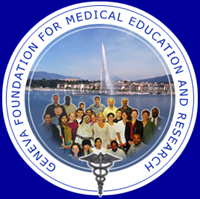Henrich Quincke research scholarships: a wonderful world of narrow doors
Becas de investigación Henrich Quincke: un mundo maravilloso de puertas estrechas
Jesús Ignacio Medina-Morales, Yoandri Orozco Martínez, Lissett Ferrer Orozco
University of Medical Sciences of Villa Clara. Cuba.
To the editor:
The regular researching process for a student of medical science in Cuba only conceives a cycle of events led by the university and the student organizations. Although development is achieved and experience is acquired, the field of science development continues to be deficient.1
One of the few strategies that have been taken in this regard are the Henrich Quincke research scholarships, which arrive in 2018 at its seventh edition.
The main objective of the scholarship according to its creator, the illustrious professor Ph.D. Alberto Juan Dorta Contreras, goes beyond training students in terms of laboratory work, synthesis calculations and analysis of protein models; It is aimed at showing the current state of science at a national and international level, linking students with research and giving them the necessary tools to be included in their training process, for the sake of scientific quality.1
When Professor Dorta in 2012 proposed to him to create the scholarships to the small group of researchers of the Laboratory of Cerebrospinal Fluid (Labcel), he did not imagine that these would be so well received by all the students of the country, and even abroad.2
It is therefore essential to highlight some peculiarities of this summer course, which makes it unique in Cuba and in other countries:
-
The subject that is addressed is part of the results previously obtained by the Labcel staff on the basis of an international project that includes the Neurochemistry Laboratory of the Georg August University of Göttingen, Germany, and the Immunology Laboratory of the University of Aarhus, Denmark.
-
Students are provided with the primary data and methodological tools so that they can draw conclusions and arrive at the final results.
-
They are offered demonstrations and conferences by different specialists from both Labcel and other institutions so that they can open their horizons as future researchers, as well as rudiments in scientometrics.2
Each summer Labcel opens its doors to those selected to enter the world of research; and its teachers, without neglecting their care obligations, assume responsibility for the task, providing a wealth of knowledge and essential tools for the future professional performance of their pupils, but due to the very small conditions of the laboratory and in order for each student to develop all the skills proposed by the program, the 14 best are chosen.1,3 Considering that the number of applicants each year exceeds 100, it is clear that, for most, the doors for the wonderful encounter with open science are closed.
In Cuba, medical sciences universities have a high number of professionals with scientific degrees and academic degrees, while research centers, although they are more numerous in Havana, they are present in all provinces,4 however, there are no more summer research courses for medical sciences students interested in that option. The propagation of this novel way of transmitting teachings in scientific research to all centers of higher medical education in Cuba could represent the greatest impact of this scholarship, which undoubtedly would have a favorable impact on the students.
It is necessary to reflect on this, taking as a reference these 6 years of educational experience and its repercussion among the students, and to honor the words of Martí5 when he said: "Every moment requires what is necessary to do at that very moment".
Declaration of interests
The authors declare no conflict of interest.
BIBLIOGRAPHIC REFERENCES
1. García-Rivero AA, González Argote J. Formas de hacer ciencia. Educ Med [Internet]. 2017 [citado 25 Dic 2017];18(3):[aprox. 3 p.]. Disponible en: https://www.sciencedirect.com/science/article/pii/S1575181316300390
2. Dorta-Contreras AJ. Ciencia abierta para estudiantes de medicina: becas de investigación Quincke. Educ Med [Internet]. 2017 [citado 25 Dic 2017];18(149):[aprox. 2 p.]. Disponible en: http://www.elsevier.es/es-revista-educacion-medica-71-articulo-ciencia-abierta-estudiantes-medicina-becas-S1575181316301280
3. Medina-Morales JI. Alumnos ayudantes: futuros cuadros científicos-pedagógicos y de especialistas en Cuba. Educ Med [Internet]. 2017 [citado 25 Dic 2017]; 30(20): [aprox. 2 p.]. Disponible en: http://www.elsevier.es/es-revista-educacion-medica-71-articulo-alumnos-ayudantes-futuros-cuadros-cientificos-pedagogicos-S1575181317300554
4. Hernández-Negrín H. Beca de investigación Henrich Quincke: ¿se puede multiplicar en Cuba? Educ Med [Internet]. 2017 [citado 25 Dic 2017];18(2):[aprox. 2 p.]. Disponible en: https://www.sciencedirect.com/science/article/pii/S1575181316300948
5. Valdés Galarraga R. Diccionario del pensamiento martiano. La Habana: Editorial de Ciencias Sociales; 2012.
Submitted: January 15 2018.
Accepted: June 15 2018.
Jesús Ignacio Medina-Morales. Villa Clara University of Medical Sciences. Cuba.
Email: jesusmm@edu.vcl.sld.cu
Copyright (c) 2018 EDUMECENTRO










